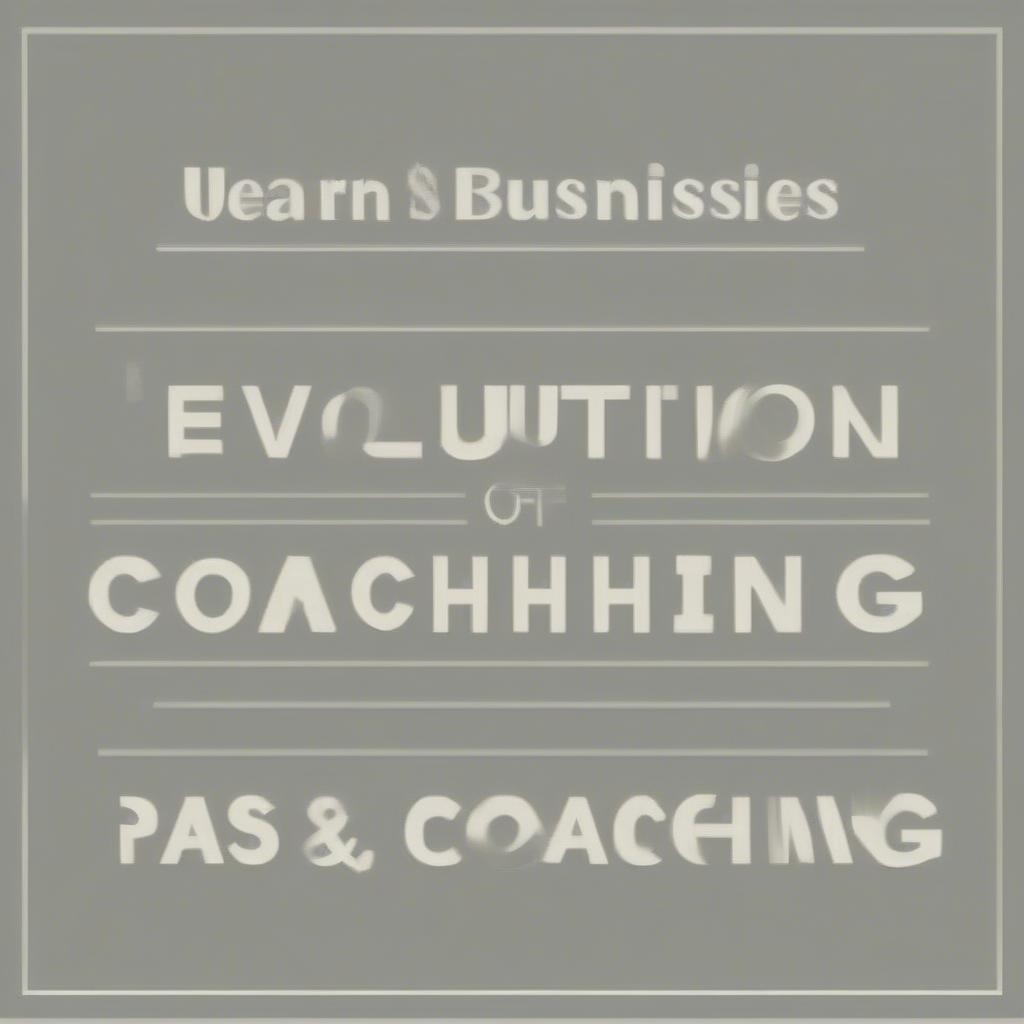
The modern business landscape is a pressure cooker. Rapid technological advancements, global competition, and the ever-present need for innovation create an environment where even the most seasoned executives can feel overwhelmed. In this high-stakes arena, the demand for executive coaching services has skyrocketed. It’s no longer a perk reserved for underperforming leaders; instead, it’s recognized as a crucial investment in leadership development and organizational success. This article delves into the multifaceted reasons behind this growing trend, exploring the ‘what,’ ‘why,’ ‘when,’ and ‘how’ of executive coaching, and how it benefits both individuals and the companies they lead.
What is Executive Coaching?
At its core, executive coaching is a personalized development process designed to enhance a leader’s skills, performance, and effectiveness. Unlike mentoring, which often involves a more informal and guidance-based relationship, executive coaching is a structured engagement with a certified coach. This coach, through strategic questioning, active listening, and insightful feedback, helps the executive to:
- Identify Goals: Clarify personal and professional objectives.
- Develop Strategies: Create actionable plans to achieve those goals.
- Overcome Challenges: Navigate obstacles and limiting beliefs.
- Enhance Leadership Skills: Improve communication, delegation, decision-making, and conflict resolution abilities.
- Increase Self-Awareness: Gain a deeper understanding of their strengths, weaknesses, and impact on others.
Executive coaching isn’t about telling someone what to do. Instead, it’s about empowering them to find their own solutions and reach their full potential. This personalized approach allows coaches to address specific challenges and opportunities that are unique to each executive and their organization.
Key Differences: Coaching vs. Mentoring
While the terms are often used interchangeably, executive coaching and mentoring serve different purposes:
- Executive Coaching: A structured, professional engagement focused on performance improvement, often facilitated by a certified coach from outside the organization. It’s driven by specific goals and involves accountability.
- Mentoring: An informal relationship where an experienced individual (the mentor) provides guidance and advice based on their own experience. Often, mentors work within the same organization and offer insights into company culture and politics.
Why the Surge in Demand?
The growing industry demand for executive coaching services can be attributed to several converging factors, including:
The Complexities of Modern Leadership
Today’s leaders face unprecedented challenges, navigating through volatile markets, constant technological disruption, and evolving workforce expectations. The traditional leadership playbook often falls short, necessitating a new approach.
- Rapid Change: The pace of change is accelerating, demanding agility and adaptability from leaders. Executive coaching provides a safe space for leaders to develop these critical skills.
- Global Competition: In a globalized market, leaders need to understand diverse cultures and navigate complex international dynamics. Coaching can help them build the cross-cultural competency necessary for success.
- Technological Disruption: The rise of artificial intelligence, automation, and new digital platforms requires leaders to embrace technological innovation and manage its impact on their organizations. Coaching can support leaders in developing a future-focused mindset.
- Increased Accountability: Leaders are increasingly held accountable for their performance and the impact they have on their teams and the organization as a whole. Coaching provides support and development to help them deliver results and foster better relationships with their team.
The Need for Leadership Development
Organizations recognize that leadership development is no longer a “nice-to-have” but a strategic imperative for sustainable growth. Executive coaching plays a pivotal role in this development process, providing personalized attention that generic leadership training programs cannot offer.
- Customized Approach: Unlike group training, executive coaching focuses on the unique needs and challenges of each individual, resulting in greater effectiveness and long-term impact.
- Targeted Skill Development: Coaches can help executives address specific skills gaps, such as communication, strategic thinking, or conflict resolution.
- Personal Growth: Executive coaching promotes self-awareness, helping leaders identify their strengths and weaknesses and develop strategies to maximize their potential.
- Improved Performance: The ultimate goal of executive coaching is to improve leadership performance, leading to greater productivity, innovation, and profitability for the organization.
Increased Focus on Mental Health and Well-being
The demanding nature of leadership roles can often take a toll on an individual’s well-being. A key aspect of effective executive coaching now includes emotional intelligence and resilience building, helping leaders to manage stress, maintain a healthy work-life balance, and prevent burnout.
- Stress Management: Coaches help executives develop coping mechanisms and stress management techniques to navigate the demands of their roles.
- Work-Life Balance: Executive coaching can assist leaders in setting boundaries and creating a sustainable work-life balance, leading to improved health and well-being.
- Emotional Intelligence: Coaches focus on building emotional awareness and sensitivity, which are critical for effective leadership and team management.
- Resilience: Coaching helps leaders develop the mental fortitude to bounce back from setbacks and maintain a positive outlook in the face of adversity.
A Competitive Edge in Talent Acquisition and Retention
Organizations that invest in executive coaching are often seen as more attractive employers. This perk signals a commitment to employee development and fosters a culture of growth and continuous improvement. This directly impacts employee retention and boosts employer brand value.
- Talent Attraction: Top-tier talent is attracted to organizations that prioritize professional growth and development, with coaching acting as a desirable offering.
- Employee Retention: By investing in their leaders, companies demonstrate their commitment to their long-term success, boosting morale and increasing retention rates.
- Enhanced Company Culture: When executives are coached to improve their leadership skills and emotional intelligence, it positively impacts the overall culture of the organization.
When is Executive Coaching Most Beneficial?
While executive coaching can provide value at any stage of a leader’s career, it is particularly beneficial during specific times:
During Times of Transition
- New Leadership Role: Whether it’s a promotion or a move to a new company, coaching can provide invaluable support to executives adapting to a new role. It can help them navigate the unfamiliar territory, develop new strategies, and build relationships effectively.
- Organizational Change: During mergers, acquisitions, restructurings, or major strategic shifts, executive coaching provides a sounding board for leaders navigating uncertainty and change. It helps them adapt, lead their teams effectively, and communicate clearly.
When Facing Specific Challenges
- Performance Issues: When an executive is facing performance challenges, coaching helps identify the root causes and develop targeted strategies for improvement. It helps leaders reflect on their behaviors and improve areas holding them back from success.
- Communication Breakdown: If an executive struggles with communication or relationship-building, coaching can help them develop stronger interpersonal skills and build more effective teams.
- Strategic Blind Spots: Coaching can provide new perspectives and insights that can help leaders identify strategic blind spots and develop more innovative solutions.
- Lack of Engagement: If an executive is struggling with engagement or motivation, coaching can help them reconnect with their purpose, set meaningful goals, and reignite their passion.
For Ongoing Development and Growth
- High-Potential Leaders: Organizations often invest in executive coaching for their high-potential leaders as a way to nurture their talent and prepare them for future leadership roles.
- Continuous Improvement: Even high-performing executives can benefit from coaching to refine their leadership skills and stay ahead of the curve. It provides a space for ongoing self-reflection and development.
How Does Executive Coaching Work?
The process of executive coaching typically follows a structured approach that may vary depending on the specific needs of the executive and their organization. Here’s a general outline:
- Initial Assessment: The process begins with a detailed assessment of the executive’s strengths, weaknesses, goals, and challenges. This might involve interviews, 360-degree feedback, and other assessment tools.
- Goal Setting: Based on the assessment, the coach and executive collaborate to define clear, measurable, achievable, relevant, and time-bound (SMART) goals. These goals will serve as the foundation for the coaching engagement.
- Coaching Sessions: Regular coaching sessions are scheduled, typically lasting 60 to 90 minutes. In these sessions, the coach uses active listening, powerful questioning, and feedback to support the executive in achieving their goals.
- Action Planning: After each session, the executive is encouraged to take specific actions to apply what they’ve learned and work towards their goals.
- Progress Tracking: The coach and executive regularly track progress, celebrate milestones, and make adjustments to the plan as needed.
- Evaluation and Closure: At the conclusion of the engagement, the coach and executive review the progress made, discuss the impact of coaching, and establish ongoing plans for continued growth.
Types of Coaching Techniques
Executive coaches utilize a range of techniques and methodologies to support their clients, such as:
- Active Listening: This technique involves focusing entirely on what the executive is saying, both verbally and non-verbally, without interruption or judgment.
- Powerful Questioning: Coaches use open-ended questions to encourage self-reflection, challenge assumptions, and promote new insights.
- Feedback: Constructive and honest feedback is essential for growth. Coaches provide specific and actionable feedback to help executives improve their performance.
- Goal Setting: Coaches guide executives in setting meaningful and achievable goals that are aligned with their overall objectives.
- Action Planning: Developing concrete action plans and breaking down larger goals into smaller, manageable tasks.
- Role-Playing: Practicing challenging situations in a safe environment to build confidence and improve communication skills.
- Mindfulness and Meditation: Introducing techniques to improve focus, manage stress, and promote self-awareness.
Benefits of Executive Coaching
The benefits of executive coaching are vast and far-reaching, impacting both the individual and the organization:
Benefits for the Executive
- Increased Self-Awareness: A deeper understanding of their strengths, weaknesses, values, and impact on others.
- Improved Leadership Skills: Enhanced communication, delegation, decision-making, and conflict-resolution abilities.
- Greater Confidence: Increased self-assurance and belief in their ability to lead effectively.
- Reduced Stress and Burnout: Improved ability to manage stress and maintain a healthy work-life balance.
- Enhanced Career Advancement: Increased opportunities for growth and advancement within their organization.
- Improved Performance: Measurable improvements in leadership effectiveness and overall performance.
Benefits for the Organization
- Improved Leadership Quality: A stronger leadership team that is better equipped to drive the organization’s success.
- Increased Productivity and Performance: Improved team performance and organizational outcomes.
- Enhanced Employee Engagement: Greater employee satisfaction and loyalty due to stronger leadership.
- Improved Organizational Culture: A more positive and productive work environment.
- Better Talent Retention: Increased retention rates due to a focus on employee development.
- Stronger Bottom Line: Improved financial performance and long-term sustainability.
- Increased Innovation: By promoting strategic thinking and fostering a culture of continuous improvement, executive coaching can lead to greater innovation and creativity throughout the organization.
Steps to Implement Executive Coaching Successfully
To maximize the return on investment in executive coaching, organizations should take a strategic approach:
- Identify the Need: Clearly define the objectives of the coaching engagement. What specific challenges or goals is the organization trying to address?
- Choose the Right Coach: Select a qualified and experienced coach with a proven track record of success. Look for coaches with certifications and expertise in your specific industry or context.
- Align Expectations: Clearly outline the responsibilities and expectations of both the coach and the executive. Ensure there is a shared understanding of the coaching process and desired outcomes.
- Create a Supportive Environment: Foster a culture that values personal and professional development. Encourage open communication and provide the necessary resources for the coaching process.
- Measure Results: Track progress and evaluate the impact of coaching. Use quantitative and qualitative data to assess the effectiveness of the engagement.
- Integrate Learning: Ensure that the insights gained through coaching are integrated into the organization’s broader leadership development programs.
- Continuous Feedback: Regularly seek feedback from both the coach and the executive to ensure the engagement is meeting its objectives. Make adjustments as needed to optimize the results.
Learn Business: Supporting Your Journey with Expert Guidance
At Learn Business, we understand the challenges that businesses face today. That’s why we offer a range of resources, including customized business coaching programs, to help you navigate the complexities of leadership and achieve your goals. Our expert coaches bring years of experience and insights to the table, providing tailored support that will drive tangible results.
We also offer a robust library of templates and guides that are designed to streamline your business processes. These resources are invaluable for businesses looking to optimize their operations, enhance their strategies, and improve their decision-making. Our templates cover a wide range of areas, including:
- Strategic Planning: Tools to develop and execute effective strategic plans.
- Financial Management: Templates for budgeting, forecasting, and financial analysis.
- Human Resources: Guides for hiring, onboarding, and performance management.
- Sales and Marketing: Tools to enhance your sales processes and marketing campaigns.
- Project Management: Templates for planning, executing, and monitoring projects effectively.
Learn Business is your partner in growth, providing you with the resources and support you need to succeed in today’s competitive environment. Whether you’re an executive looking to enhance your leadership skills or an organization seeking to develop your talent, Learn Business has the expertise and tools to help you achieve your goals.
Conclusion
The industry demand for executive coaching is not a fleeting trend. It reflects a fundamental shift in how organizations approach leadership development and a recognition of the need for personalized support in an increasingly complex business world. By understanding the ‘what,’ ‘why,’ ‘when,’ and ‘how’ of executive coaching, both individuals and organizations can harness its transformative power to achieve greater success, enhance employee well-being and drive sustainable growth. As the business landscape continues to evolve, the strategic investment in executive coaching will only become more crucial.



Leave a Reply